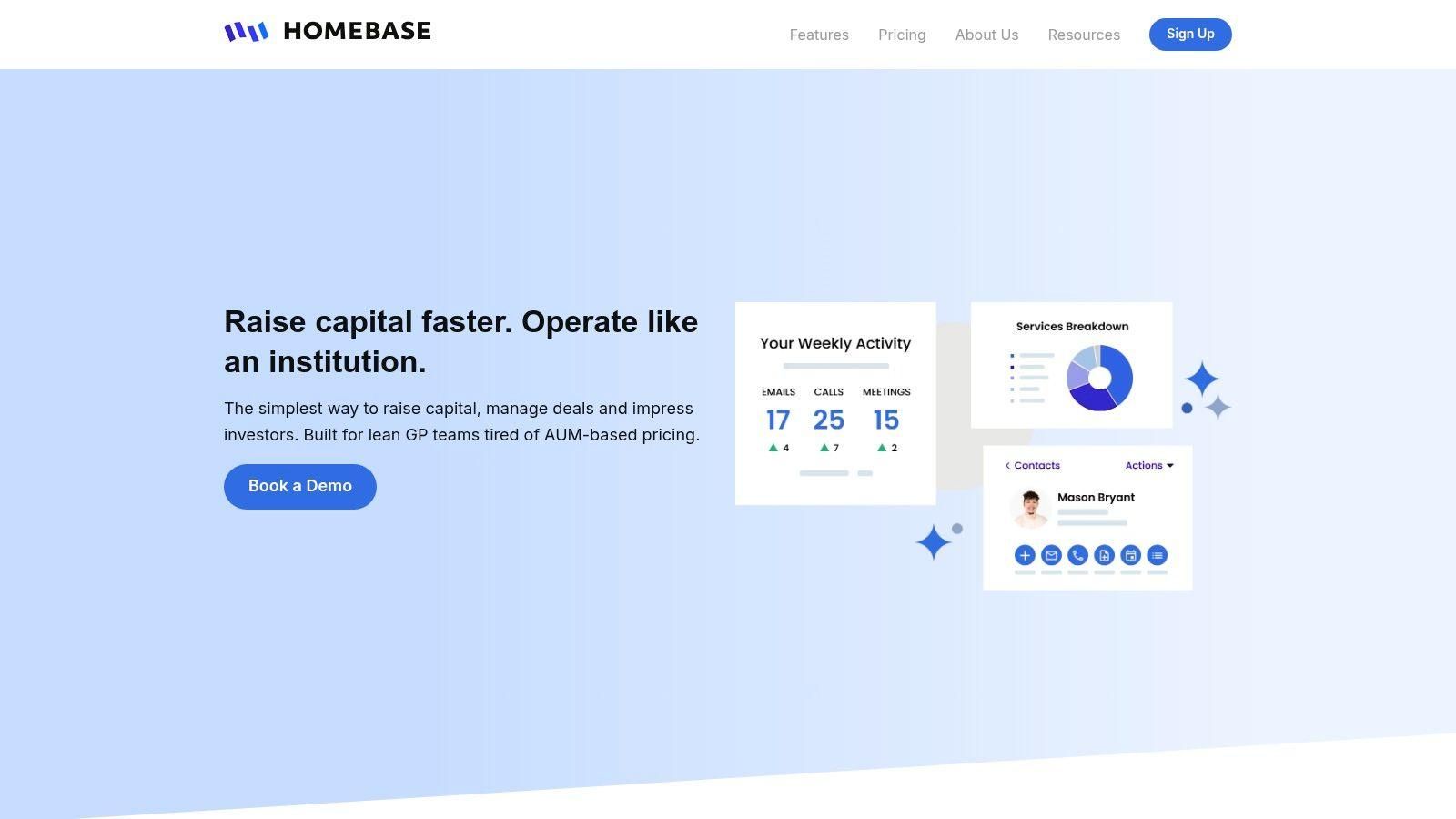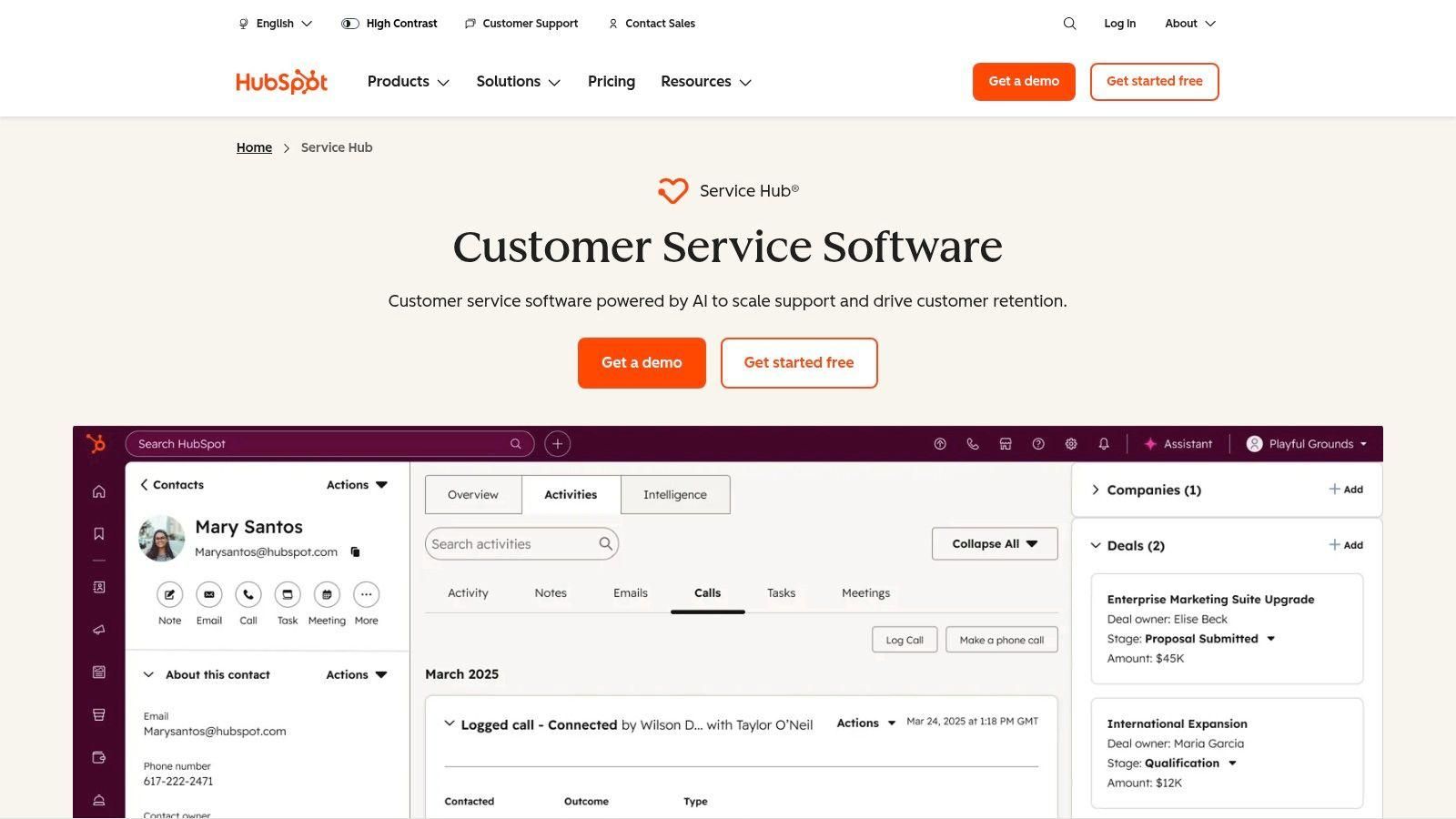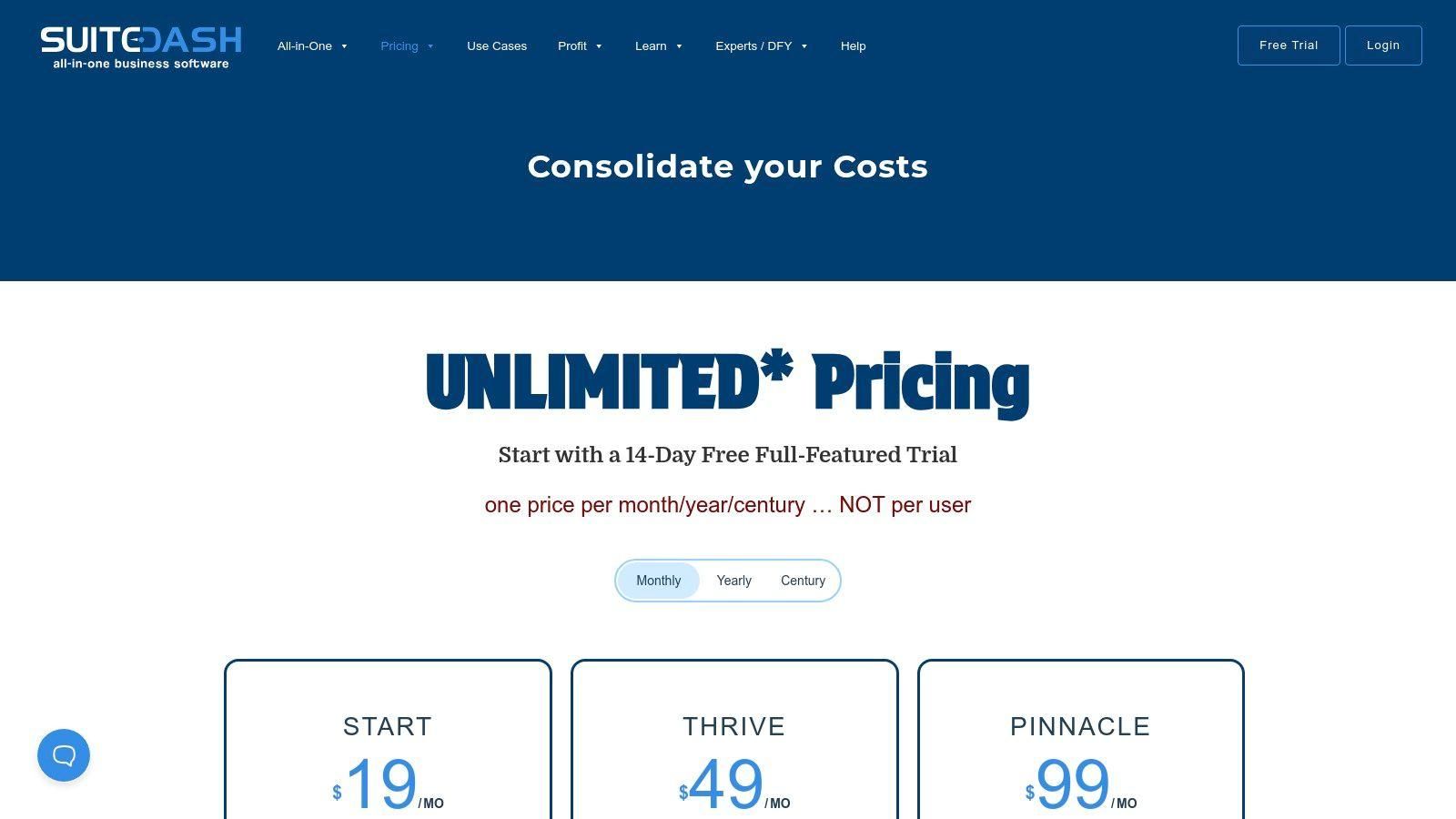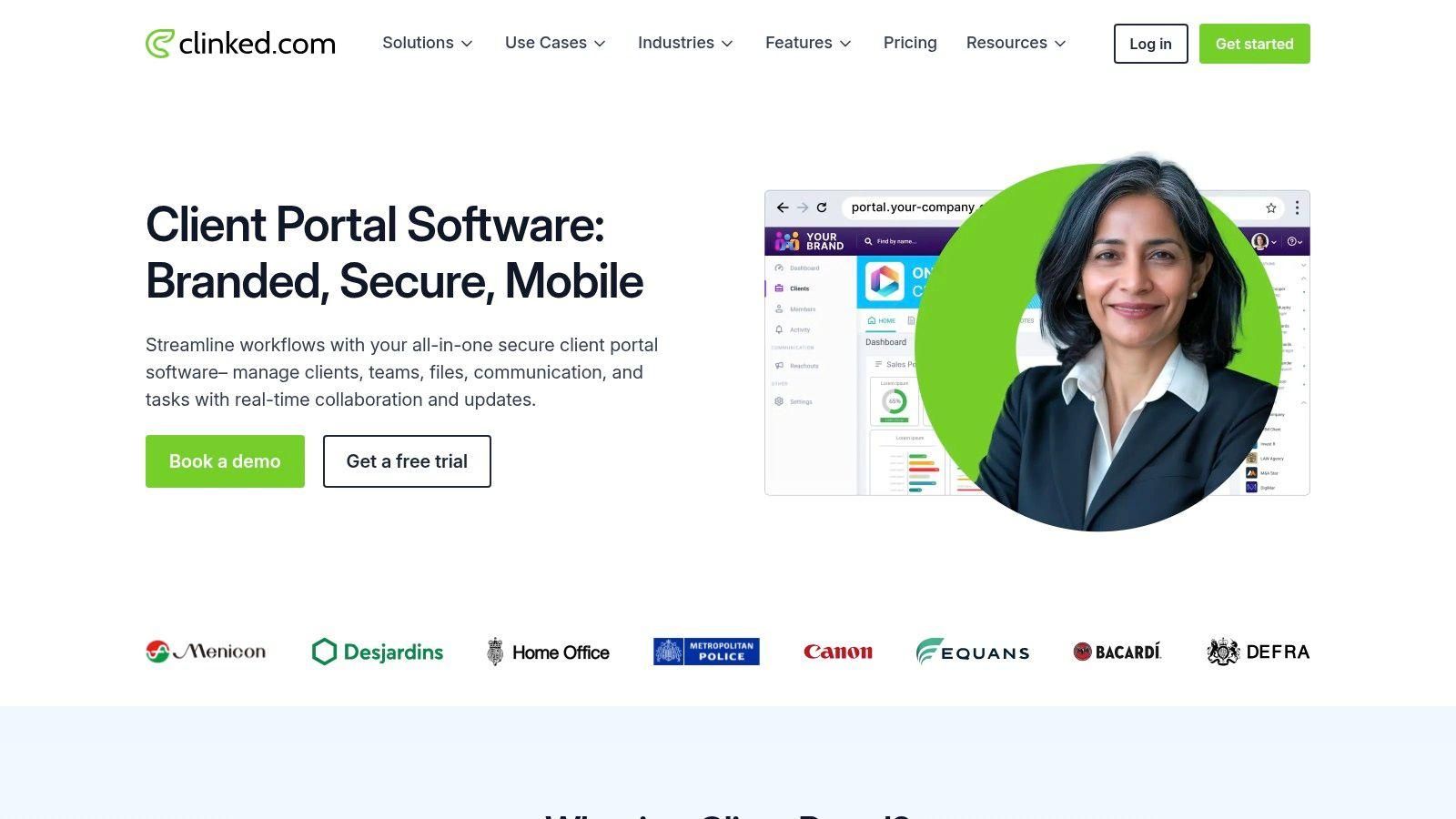Top 7 Best Client Portal Software for Real Estate in 2025
Top 7 Best Client Portal Software for Real Estate in 2025
Discover the best client portal software for real estate. Learn which solutions top the list in 2025 to enhance your client experience and boost efficiency.
Domingo Valadez
Sep 5, 2025
Blog
Real estate syndicators juggle investor communications, deal documents, and distributions across endless email chains and spreadsheets. That setup invites errors, slows your team, and undermines investor confidence. This guide cuts through the noise to help you choose the best client portal software for your syndication business.
What you’ll learn in this roundup:
- A curated list of 7 leading platforms (Homebase, G2, Capterra, Zendesk, HubSpot, SuiteDash, Clinked)
- Detailed feature breakdowns, pricing tiers, and pros/cons
- Practical examples showing real-world workflows
- Screenshots and direct links for quick evaluation
Each option goes beyond basic file sharing, offering tools for fundraising, compliance, automated reporting, and investor dashboards tailored to multifamily sponsors. You’ll see exactly how these portals streamline workflows so you can spend less time on admin and more time sourcing deals.
Ensuring that sensitive investor information is protected is paramount. Platforms with robust secure document sharing features guard your data and reinforce trust. Whether you need customizable investor portals, automated distribution tracking, or branded communication hubs, this list has you covered. Let’s dive into the solutions that will scale your operations and impress your investors.
1. Homebase
Homebase stands out as a purpose-built, all-in-one platform meticulously designed to address the unique challenges of real estate syndication. It centralizes every critical workflow, from capital raising to investor relations, into a single, intuitive portal. This consolidation empowers syndicators to manage deals, communicate with investors, and maintain compliance with greater efficiency and professionalism.

Unlike generic client portals, Homebase offers a specialized toolset tailored for real estate operators. Its core strength lies in its ability to streamline the entire syndication lifecycle, eliminating the need for scattered spreadsheets, endless email chains, and disparate software tools. This focused approach makes it one of the best client portal software options available for the real estate investment sector.
Key Features and Capabilities
Homebase provides a robust suite of features designed to enhance operational efficiency and elevate the investor experience:
- Automated Fundraising: Streamline the capital-raising process with automated workflows. Investors can easily commit capital, complete subscription documents, and track their investment status directly through the portal.
- Compliance and Verification: The platform includes integrated KYC (Know Your Customer) and accreditation verification tools, helping you meet regulatory requirements with confidence and reduce manual due diligence.
- Secure Document Management: A centralized, secure hub for all deal-related documents, from PPMs to K-1s. Built-in e-signature capabilities eliminate the friction of printing, signing, and scanning, accelerating closing timelines.
- Investor Relations Hub: Manage all investor communications, provide performance updates, and handle distributions within the platform. This creates a transparent and professional experience that builds investor trust.
- White-Glove Support: Homebase offers a high-touch onboarding experience with white-glove migration services to ensure a seamless transition. Additionally, 24/7 customer support is available to address any issues promptly.
Pricing and Onboarding
Homebase's pricing model is a significant differentiator. It offers a transparent, flat fee of $250 per month, which includes unlimited deals and investors. This predictable cost structure avoids the escalating fees common with platforms that charge based on assets under management (AUM), making it a highly scalable solution for syndicators at any stage of growth.
Who is Homebase Best For?
This platform is ideal for real estate syndicators and fund managers seeking to move beyond manual processes and adopt a professional-grade, centralized management system. Its all-in-one nature is perfect for operators who want to simplify their tech stack, automate repetitive tasks, and deliver a superior, modern experience to their investors. The predictable pricing makes it particularly attractive for syndicators planning to scale their portfolio without incurring unpredictable software costs.
Pros:
* All-in-one centralized platform streamlines fundraising, investor relations, and deal management.
* Flat monthly fee with unlimited deals and investors offers predictable, scalable pricing.
* Robust features including automated workflows, KYC/accreditation, and e-signatures.
* White-glove migration and 24/7 support ensure a smooth transition and ongoing assistance.
Cons:
* The flat-fee structure may be less cost-effective for new syndicators with only one or two small deals.
* Limited public information on advanced customization or third-party software integrations.
Learn more at Homebase
2. G2
G2 is not a client portal software itself, but rather a comprehensive B2B software marketplace. It earns its spot on this list as an essential research tool for real estate syndicators looking to find the best client portal software by leveraging thousands of verified user reviews and data-driven comparisons. Think of it as the starting point for your research, allowing you to build a shortlist based on real-world feedback from peers.
The platform’s strength lies in its aggregated review data, which powers its signature "Grid" reports. These visual charts plot software solutions based on user satisfaction and market presence, making it easy to identify industry leaders, high-momentum players, and niche solutions at a glance. For a real estate syndicator, this means you can quickly see which portals other finance and investment professionals are successfully using.
Key Features and How to Use Them
G2's platform is designed to streamline the software discovery process.
- Advanced Filtering: Don't just browse; filter the client portal category by features critical to real estate, such as "document management," "e-signatures," and "reporting." You can also filter by business size to see which tools are favored by small syndication firms versus large institutions.
- Verified User Reviews: Dig into detailed reviews from verified users. Look for reviews from professionals in finance, real estate, or investment management to find feedback relevant to your specific use case, such as managing K-1s or distributing investor updates.
- Side-by-Side Comparisons: Once you have a shortlist, use the comparison tool to see a direct feature-for-feature breakdown of up to four different platforms. This is invaluable for comparing pricing structures, integration capabilities, and security protocols.
Practical Tip: Pay close attention to the "ease of use" and "quality of support" scores. A powerful portal is useless if your investors find it confusing or if you can't get timely help when a distribution needs to be processed.
Pros and Cons
Website:https://www.g2.com/categories/client-portal
3. Capterra
Similar to G2, Capterra is a leading online marketplace for software, serving as a critical research hub rather than a client portal itself. It makes this list because of its user-friendly interface and curated shortlists, which are perfect for real estate syndicators who need a quick, high-level overview of the market to find the best client portal software without getting bogged down in excessive detail. Its strength is in simplifying the initial discovery phase.
Capterra presents software options in a clear, digestible format, often creating "shortlists" of top-performing tools based on user reviews and search trends. This is particularly useful for a busy real estate professional who needs to efficiently identify a few strong contenders for their investor relations platform. The platform focuses on providing quick-scan information, making it an excellent starting point for building your initial list of potential vendors.
Key Features and How to Use Them
Capterra's platform is designed for rapid research and comparison.
- Curated Shortlists: Capterra regularly updates shortlists (e.g., for 2025) that highlight top client portals. This saves you the time of starting from scratch and immediately presents you with popular and well-regarded options.
- Rich Filtering: Easily narrow down the vast software directory by applying filters crucial for syndicators. You can filter by deployment (cloud-based), pricing models (per user, subscription), and specific features like "document management" or "investor reporting."
- Bite-Sized Summaries: Each software profile includes a concise summary of its purpose, key pros and cons, and a snapshot of its starting price. This allows for a quick evaluation to decide if a tool is worth a deeper look.
- Direct Vendor Links: Once you identify a promising platform, Capterra provides direct links to the vendor's website for a demo, free trial, or purchase, streamlining the next step in your evaluation process.
Practical Tip: Use the "Users" filter to select your business size. This helps surface software that is priced and designed for a firm of your scale, preventing you from wasting time on enterprise-level solutions if you're a smaller syndication.
Pros and Cons
Website:https://www.capterra.com/portal-software/shortlist/
4. Zendesk
Zendesk is a customer service powerhouse that offers a sophisticated, no-code client portal as part of its broader suite of tools. While traditionally known for its ticketing system, it earns a spot on this list for its enterprise-grade capabilities, making it a strong contender for larger syndication firms that need to manage a high volume of investor inquiries alongside their portal. It transforms the investor experience from a simple document repository into a comprehensive, self-service support hub.
The platform's strength lies in its integration of a knowledge base, community forums, and an AI-powered help center directly into the investor portal. For a growing real estate syndication, this means you can proactively answer common investor questions about tax documents, distribution schedules, or property performance reports before they even submit a support ticket. This focus on self-service significantly reduces the administrative burden on your team.
Key Features and How to Use Them
Zendesk’s portal is designed to deflect inquiries and empower investors.
- Integrated Knowledge Base: Create a dedicated, branded help center with articles detailing your investment process, FAQs on K-1s, and tutorials on navigating the portal. The AI-powered search ensures investors find answers instantly.
- Community Forums: Build a secure, members-only forum where investors can connect, ask questions, and share insights. Your team can moderate discussions and use the feedback to identify common concerns or areas for improvement in your communications.
- AI-Powered Agents: Deploy chatbots and virtual agents within the portal to provide instant answers to routine questions 24/7. This is ideal for handling inquiries about account access or finding specific documents, freeing up your team for more complex investor relations tasks.
- Robust Analytics: Track what investors are searching for, which help articles are most popular, and where they are getting stuck. Use this data to continuously refine your knowledge base and improve the self-service experience.
Practical Tip: Use the role-based permissions to create different access levels. You can provide general partners with access to more detailed operational reports while limited partners see standard investment summaries, all within the same secure portal.
Pros and Cons
Website:https://www.zendesk.com/service/customer-portal/
5. HubSpot
HubSpot is a powerhouse in the CRM world, and its Service Hub includes a customer portal that acts as a secure, branded space for clients. While not a traditional investment management portal, its deep integration with the HubSpot CRM makes it a compelling choice for real estate syndicators who prioritize a single source of truth for all investor communications, from initial contact to ongoing support and ticket management. This makes it one of the best client portal software options for firms already embedded in the HubSpot ecosystem.
The portal allows investors to log in, view, and manage support tickets, giving them a transparent way to track inquiries about distributions, document requests, or account updates. Because it’s tied directly to the CRM, every interaction is logged against the investor's contact record, providing your team with a complete historical view and enabling powerful automation and reporting.

Key Features and How to Use Them
HubSpot's portal is designed to unify your service operations with your core CRM data. For a comprehensive understanding of its core capabilities, it's useful to consider resources that aid in evaluating HubSpot CRM as a complete system.
- Integrated Ticket Management: Investors can submit and track support tickets directly through the portal. You can create automated workflows to route tickets about K-1s to your accounting team or inquiries about a new offering to the investor relations team.
- Knowledge Base Integration: Connect your portal to a HubSpot-powered knowledge base. Proactively answer common investor questions by creating articles on topics like "How to read your quarterly report" or "Understanding your distribution schedule."
- CRM-Driven Automation: Leverage CRM data to automate portal-related tasks. For example, you can create a workflow that automatically sends a notification to an investor when their ticket status changes or when a requested document has been uploaded.
Practical Tip: Use the portal to streamline document requests. Instead of emailing sensitive files, create a ticket for the request, attach the document securely within HubSpot, and notify the investor through the portal that their file is ready for download. This creates an auditable trail.
Pros and Cons
Website:https://www.hubspot.com/products/service
6. SuiteDash
SuiteDash is an all-in-one, white-label business software designed to consolidate multiple functions into a single platform. While not built exclusively for real estate, its comprehensive toolset makes it a powerful choice for syndicators looking to manage client relationships, documents, and billing without subscribing to several different services. It stands out by offering a completely brandable environment, allowing you to create a professional, seamless experience for your investors under your own domain and logo.
This platform's core value proposition is its predictable, flat-rate pricing that includes unlimited contacts, staff, and portals. For a growing syndication firm, this model eliminates the financial penalty of scaling your investor base or team, making it one of the best client portal software options for cost-conscious growth. It effectively combines a CRM, project manager, file exchange, and invoicing system into one unified dashboard.

Key Features and How to Use Them
SuiteDash is packed with features that can be configured to support a real estate syndication workflow.
- Complete White-Labeling: Customize every aspect of the portal, from your URL (e.g., investors.yourcompany.com) to the login screen, color scheme, and even a branded mobile app. This reinforces your brand identity and builds trust with investors.
- Secure File Exchange & E-Signatures: Create dedicated, secure folders for each investor to share sensitive documents like K-1s, subscription agreements, and quarterly reports. The built-in e-signature functionality streamlines the process of executing legal documents directly within the portal.
- Integrated Invoicing and Subscriptions: Manage capital calls and distribution payments through the platform. You can send invoices, set up recurring payments for specific deals, and track payment statuses without needing separate accounting software.
Practical Tip: Use the "Flows" automation feature to create onboarding sequences for new investors. You can automatically trigger tasks, send welcome emails, and request necessary documents, ensuring a consistent and professional experience for every new limited partner.
Pros and Cons
Website:https://suitedash.com/pricing/
7. Clinked
Clinked is a purpose-built, secure client portal software designed for firms that prioritize robust security, deep branding customization, and client-facing collaboration. For real estate syndicators, it offers a white-labeled environment where investors can securely access documents, track tasks, and communicate with the team, all under the syndication firm’s brand. Its focus on external collaboration makes it one of the best client portal software options for managing investor relations.
The platform distinguishes itself with a strong emphasis on security features like watermarking and granular permissions, which are critical when handling sensitive financial documents such as PPMs and K-1s. Clinked provides a centralized, branded hub that goes beyond simple file sharing, incorporating tools for discussions, events, and task management to create a comprehensive investor experience.

Key Features and How to Use Them
Clinked’s features are tailored to create a secure and engaging environment for your investors.
- White-Label Customization: Customize the portal with your own logo, colors, and custom domain (e.g., investors.yourbrand.com). This reinforces your brand identity and builds trust with investors by providing a professional, seamless experience.
- Secure File Sharing & Management: Upload offering documents, reports, and tax forms with confidence. Use features like version control to ensure everyone has the latest document, and apply watermarks to sensitive files to deter unauthorized sharing.
- Integrated Collaboration Tools: Use the built-in tasks, discussions, and calendars to manage investor communications. You can create a discussion thread for a new property acquisition update or set calendar events for investor webinars, keeping all interactions within the secure portal.
Practical Tip: Use the granular permissions feature to create specific groups for different deals or investor tiers. This ensures that LPs only see the documents and communications relevant to their specific investments, maintaining confidentiality and reducing clutter.
Pros and Cons
Website:https://www.clinked.com/client-portal
Top 7 Client Portal Software Comparison
Choosing the Right Portal to Scale Your Syndication Business
Selecting the best client portal software is more than a tech choice. It is a growth lever that shapes investor satisfaction and operational efficiency.
Why Purpose-Built Solutions Matter
Generic portals offer basic ticketing and CRM features. A platform designed for real estate syndicators brings deal tracking, cap table management, and automated compliance into one unified workspace.
Key Takeaways
- Homebase offers an all-in-one suite with a flat-fee model for predictable budgeting.
- G2 and Capterra excel in peer reviews to validate real-world performance.
- Zendesk and HubSpot deliver scalable support and marketing automation.
- SuiteDash provides deep client engagement tools at tiered pricing.
- Clinked prioritizes collaboration with branded portals and secure file sharing.
- Implement a clear onboarding playbook within your chosen portal to speed up investor activation and reporting.
Aligning Tool Features to Your Workflow
Match your top three deal flow processes to portal capabilities. For example, use automated investor onboarding in Homebase to reduce manual tasks by up to 50 percent each quarter. Keep data in sync across tools by using pre-built integrations or custom APIs.
Actionable Next Steps
- Map your current investor communication channels and identify inefficiencies.
- Request demos from 3 to 5 platforms, focusing on real estate syndication features.
- Run a two-week trial with your top candidate and gather feedback from your team.
- Set clear success criteria around onboarding time, reporting accuracy, and support response rates.
Factors to Consider
- Integration with your accounting and property management systems
- Scalability of user seats and investor records
- Compliance automation for SEC reporting and K-1 distribution
- Custom branding and white-label options
- Security certifications, including SOC 2 and ISO 27001
- Granular user permissions and role-based access controls
Choosing the right solution can transform how you handle fundraising, investor updates, and asset management. By focusing on platforms purpose-built for multifamily and syndication, you position your firm to scale efficiently.
Call to Action
Ready to elevate your investor experience? Explore Homebase, the all-in-one client portal software built for real estate syndicators. Visit Homebase to schedule a personalized demo and see how you can streamline fundraising, automate workflows, and keep investors informed with ease.
Share On Linkedin
Share On Twitter
Share On Linkedin
Share On Twitter
DOMINGO VALADEZ is the co-founder at Homebase and a former product strategy manager at Google.
What To Read Next
A Guide to Real Estate Financial Modelling for Syndicators
Blog
Master real estate financial modelling with this guide. Learn to build models that analyze deals, forecast returns, and build unwavering investor confidence.
Sign up for the newsletter
If you want relevant updates from our team at Homebase, sign up! Your email is never shared.
Sign up for the newsletter
If you want relevant updates from our team at Homebase, sign up! Your email is never shared.
© 2026 Homebase. All rights reserved.